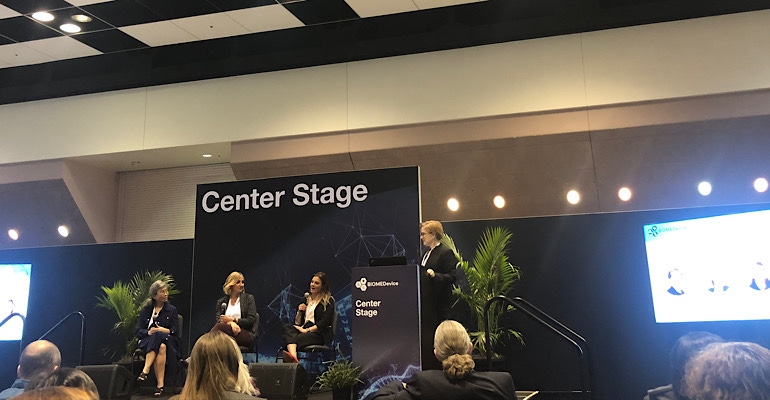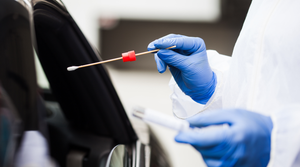Finding the Right Partner for Your Manufacturing Needs
A panel held during BIOMEDevice Silicon Valley highlighted how startups could form the right collaborations for success.
December 12, 2022

SANTA CLARA, CA - There’s only so much that a small startup can do. Yes, the core team can be dedicated and understand the mission. Yes, the core team can pour out their passion into getting a product into the market, but at some point, the group is going to need help.
During a session at BIOMEDevice titled, “Lessons in Partnering and Sourcing for Growing Successful Startups,” participants received advice and tips on how to find the best support.
Xina Quan, co-founder & CEO at PyrAmes; Amanda Calabrese, Co-founder and COO at Sequel, and Kelly Ashfield, COO of Materna Medical, were featured on the panel. Kate Stephenson, principal & Founder at Dyad Engineering served as moderator. The panel was sponsored by MedtechWomen.
Stephenson threw a question to the group – that perhaps framed the discussion for the panel “One of the biggest decisions as a startup is what do you develop internally; what is your core competency; what do you partner out?”
Calabrese responded. Her company, Sequel, has redesigned the tampon. The firm was founded in 2019.
“From our perspective we were designing for the optimization of our supply chain from day one,” she said. “I mentioned the tampon space was a monopoly, that goes all the way back to even the production and the machines that make the tampons. So, we have this core technology we created. We wanted to create this spiral-shaped tampon that was going to change a very significant part of the manufacturing method.”
To do this, Sequel brought on intense regulatory expertise in-house to be able to show larger players and potential partners in the field that the company was serious about its goal to redesign the tampon.
A question then came up about how startups could attract the right partners given that most are in the development phase and have yet to secure revenue.
“There are plenty of development groups out there that are really great and can walk you through the process and give you a full scope … a full proposal from start to finish,” Ashfield said. “Not that you have the money, but it can give you an idea of realistically what it’s going to take in time and cost. That can be a really valuable tool to use in a conversation, if you’re trying to close a round, to showcase exactly what it’s going to take to get there.”
Quan noted that startups should find partners that are flexible and that can help in the long-run.
“It cost us six months," Quan said. "But at least we knew what the customer wanted.”
About the Author(s)
You May Also Like




